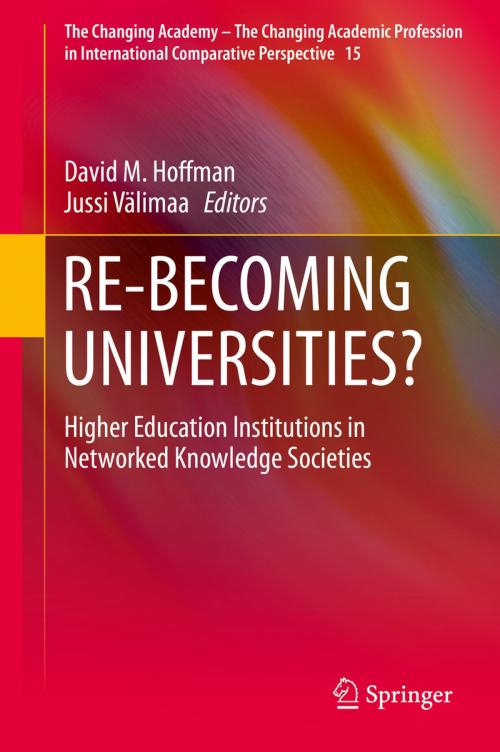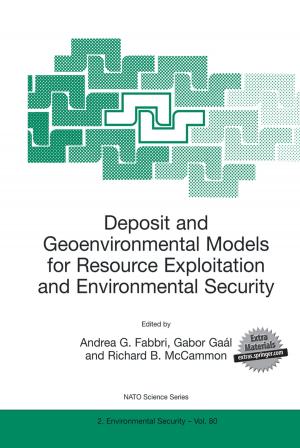RE-BECOMING UNIVERSITIES?
Higher Education Institutions in Networked Knowledge Societies
Nonfiction, Reference & Language, Education & Teaching, Higher Education, Social & Cultural Studies, Social Science, Sociology| Author: | ISBN: | 9789401773690 | |
| Publisher: | Springer Netherlands | Publication: | March 9, 2016 |
| Imprint: | Springer | Language: | English |
| Author: | |
| ISBN: | 9789401773690 |
| Publisher: | Springer Netherlands |
| Publication: | March 9, 2016 |
| Imprint: | Springer |
| Language: | English |
This book provides an overview of the major findings of the comparative research project, Changes in Networks, Higher Education and Knowledge Society (CINHEKS). The main aim of this international comparative research project is the analysis of how Higher education institutions are networked within distinct knowledge societies in two key regions of the world: Europe and the United States of America. This research project was carried out in four European countries (Finland, Germany, Portugal and the United Kingdom) and in two different states in the United States of America. In addition, during the course of the research, a team from the Russian Federation joined the CINHEKS study. The analysis is contextually grounded in a comparative policy analysis focused on the main developments and understandings of the ideas surrounding the term knowledge society, in all countries concerned. Empirical elaboration is established via a series of sequential studies, each building, incrementally, on the previous study. These studies include institutional profiles of higher education institutions, institutional case studies, and an international comparative survey that illuminates academics’ social networks. The research findings broaden our understanding of the differences and similarities in how higher education institutions and individual academics are networked within and between societies that understand themselves as knowledge societies. The book introduces a novel analytical synthesis, which asserts contemporary societies have evolved into Networked Knowledge Societies. Methodologically, the book both challenges and raises the bar for previous approaches in comparative higher education, in terms of research design, execution and lays the groundwork for a new generation of international comparative higher education research.
This book provides an overview of the major findings of the comparative research project, Changes in Networks, Higher Education and Knowledge Society (CINHEKS). The main aim of this international comparative research project is the analysis of how Higher education institutions are networked within distinct knowledge societies in two key regions of the world: Europe and the United States of America. This research project was carried out in four European countries (Finland, Germany, Portugal and the United Kingdom) and in two different states in the United States of America. In addition, during the course of the research, a team from the Russian Federation joined the CINHEKS study. The analysis is contextually grounded in a comparative policy analysis focused on the main developments and understandings of the ideas surrounding the term knowledge society, in all countries concerned. Empirical elaboration is established via a series of sequential studies, each building, incrementally, on the previous study. These studies include institutional profiles of higher education institutions, institutional case studies, and an international comparative survey that illuminates academics’ social networks. The research findings broaden our understanding of the differences and similarities in how higher education institutions and individual academics are networked within and between societies that understand themselves as knowledge societies. The book introduces a novel analytical synthesis, which asserts contemporary societies have evolved into Networked Knowledge Societies. Methodologically, the book both challenges and raises the bar for previous approaches in comparative higher education, in terms of research design, execution and lays the groundwork for a new generation of international comparative higher education research.















